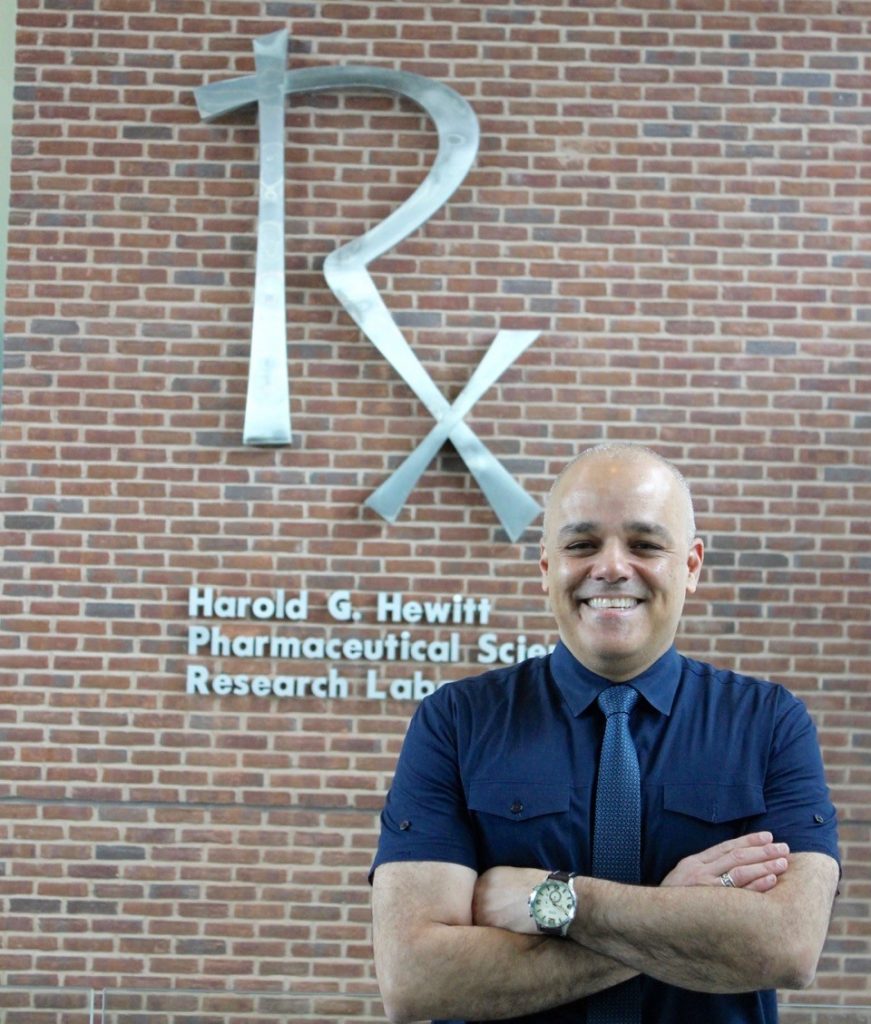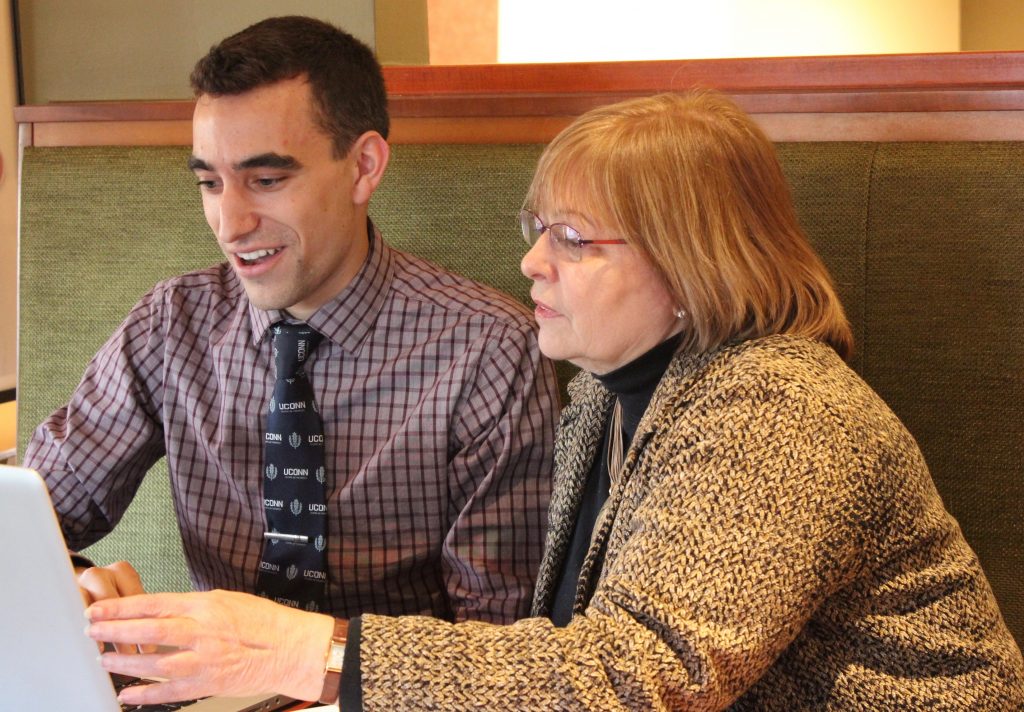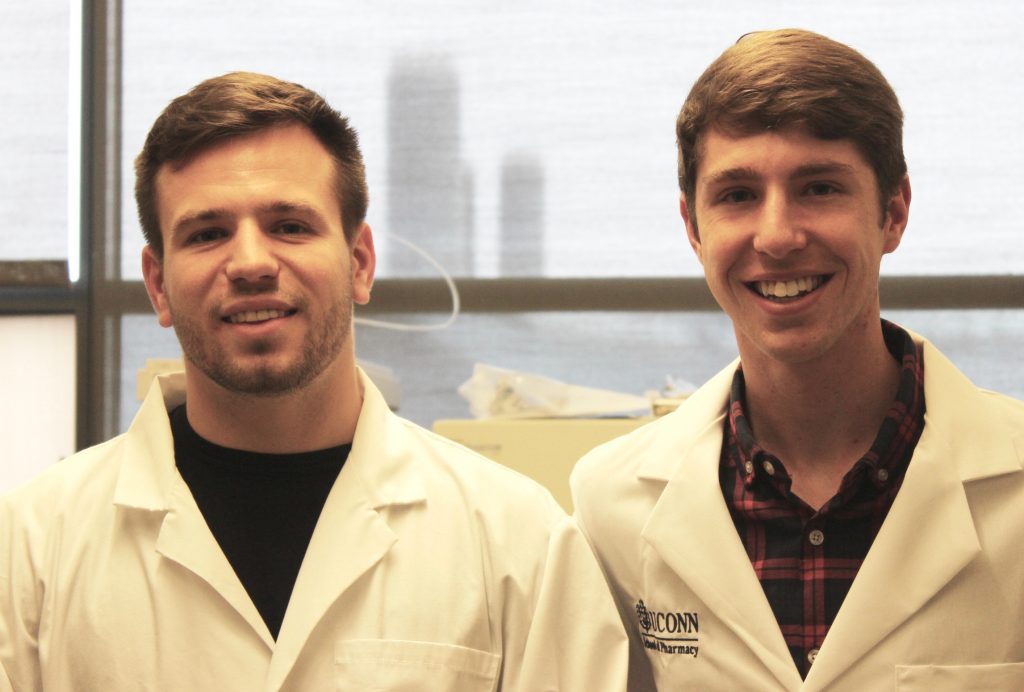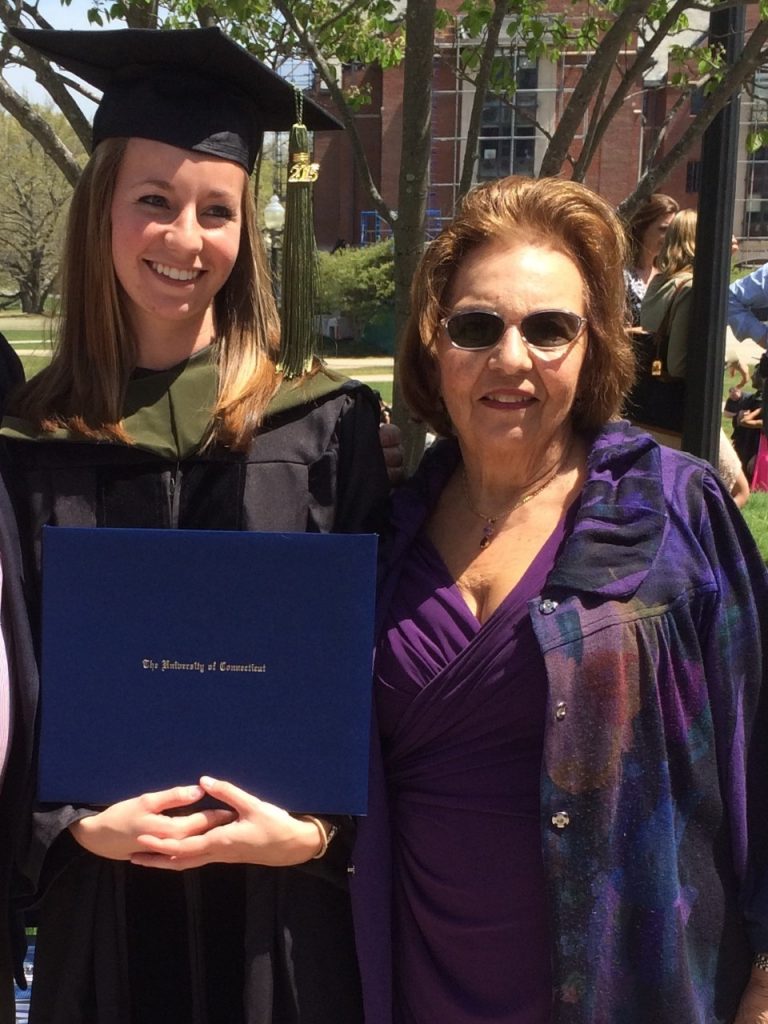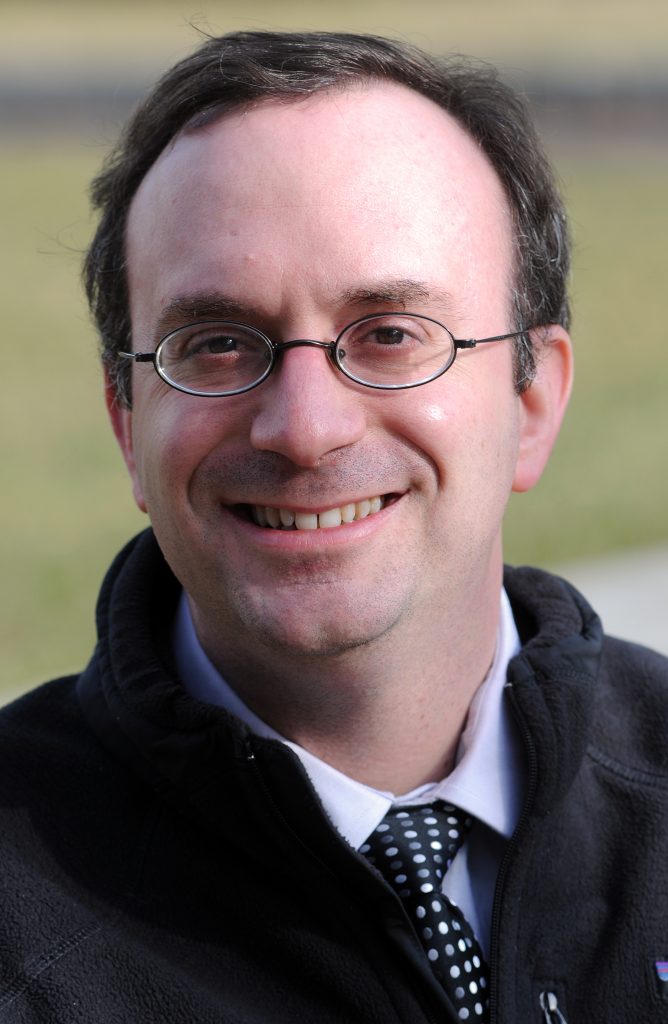School of Pharmacy
José Manautou Named to National Advisory Council
Service on NAEHSC means making a difference at the highest levels of research affecting environmental health.
May 23, 2017 | Sheila Foran/Pharmacy Communications
Got a Minute?
Catch up on the latest research happening at UConn. In laboratories, in hospitals, and in the field, researchers are gathering data to answer critical questions facing our global community.
May 19, 2017 | Kristen Cole
Sights and Sounds of Commencement 2017
More than 9,000 degrees – both undergraduate and graduate – will be awarded this year, which is the highest number of degrees conferred at UConn in the University's 136-year history.
Loyalty to UConn and their Profession Characterize Funaro Family
When Jason Funaro marches at the 2017 commencement ceremony, he will be treading in the footsteps of his parents and grandparents.
April 24, 2017 | Sheila Foran/School of Pharmacy Communications
TIP Internship Program Delivers Big Rewards
Ask associate professor of reconstructive sciences Caroline Dealy to rate the success of the Technology Incubation Program’s (TIP) summer internship program so far and she says she’d give it an A+. She hastens to add that she may be just a tad biased — it was her brainchild after all — but she stands by […]
April 19, 2017 | Sheila Foran/Pharmacy Communications
Jeannette Wick Earns CETL Teaching Award
Center for Teaching and Learning honors Jeannette Wick with Adjunct Faculty Award.
April 18, 2017 | Sheila Foran/Pharmacy Communications
A Family Full of Pharmacists and a Thirst for Adventure
One family with a commitment to the profession of pharmacy and a thirst for adventure.
March 29, 2017 | Sheila Foran, School of Pharmacy
If it’s Monday This Must be Hartford
Being able to read airport signs in a variety of languages comes in handy when you're a world traveler.
March 27, 2017 | Sheila Foran, School of Pharmacy
All in the Family at Avery Point
Aspiring pharmacist Mohammad Mansour – and his five siblings before him – chose to begin their UConn journeys at Avery Point.
March 22, 2017 | Shobha Venkatraman
Good Communication is at the Center of Pharmacy Practice
Nate Rickles is a second-generation pharmacist with a commitment to an effective healthcare delivery system that reduces healthcare disparities.
March 20, 2017 | Sheila Foran, School of Pharmacy
